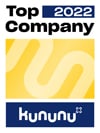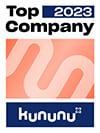Developing your own CMS: Step by step to a customized content management system

Developing your own CMS may seem daunting, but it offers unparalleled customization and control. Learn how to develop your own CMS step-by-step to meet your specific needs and strengthen your digital presence without getting bogged down in technical intricacies.
The most important things at a glance
- Having your own CMS allows for a high degree of customizability and can mean long-term cost savings, with a focus on individual requirements and search engine optimization.
- The planning and development phases are crucial for the development of a successful CMS and should include detailed requirements analyses, target group considerations and the selection of suitable technologies and methods.
- Data security and regular updates are of great importance when developing your own CMS to protect you against cyber attacks and ensure the integrity of user data.
Why should you develop your own CMS?
A custom CMS offers you a high degree of flexibility and customizability. With a custom CMS, you can expand and customize your system to meet your specific requirements. Compared to modular systems, a custom CMS also offers greater freedom when it comes to search engine optimization and customization of your website.
Another advantage of a customized CMS is the ability to make modifications independently. This not only increases control, but also reduces dependencies. In the long term, maintaining your own CMS can even be more cost-effective than constant payments to external providers. Adaptability, control and long-term cost savings are therefore attractive advantages of an in-house CMS over standardized systems.
Planning phase: define goals and requirements
The planning phase is a crucial step in the development of your own CMS. It lays the foundation for all subsequent steps and is crucial for designing a successful online business. In this phase, you need to formulate the specific requirements for the CMS. This includes
- individual system functionalities according to your specific technical concepts
- Basic questions about the number of users
- workflows and priorities in terms of use and administration.
A detailed checklist will help you to identify important aspects such as
- Usability
- costs
- modularity
- Layout & design (image)
- Support & service
and the requirements and functionality of the CMS.
Target group analysis
An in-depth target group analysis is essential for the development of a user-friendly CMS. It helps you to understand the needs and lifestyles of potential users. You should repeat this analysis at regular intervals in order to continuously adapt the CMS to the changing needs of users. Psychographic characteristics such as behavior, values, preferences and character traits should also be considered to ensure user centricity.
If your CMS is to be used internationally, it must offer multilingualism and multidomain handling in order to meet the requirements of globally active companies. The importance of user-centric features can be seen in usability features such as inline editing and easy optimization for different channels in Neos.
Technical requirements
When developing your own CMS, you should not ignore the technical requirements. Common CMS such as Wordpress 5.6 and Drupal 9 have specific system requirements that should be taken into account to ensure compatibility and efficiency. A central aspect of this is ensuring fast loading times in order to optimize user satisfaction and search engine rankings. This can be achieved by configuring the cache appropriately.
Another important technical requirement of a proprietary content management system is the ability to customize and extend the system. This is essential in order to adapt to the dynamic requirements of the market and ensure the longevity of the system. In addition, flexibility in content maintenance enables a company to react quickly to changes.
For efficient management and maintenance, your CMS should support technologies that enable a clear separation of design, programming and content, as is the case with content management systems.
Design and user experience
Design and user experience play a crucial role in the development of a CMS. A clearly structured separation of design, programming and content can maximize the user-friendliness of a CMS. By separating content and layout in a CMS, design changes can be facilitated without affecting the content itself.
Another important factor for the usability of a CMS on different mobile devices is the inclusion of responsive design. User-friendly and intuitive operation is essential for an effective CMS. Specialized UI/UX designs can improve the user experience and increase accessibility on various devices.
Development phase: technologies and methods
In the development phase of a CMS, suitable technologies and methods are selected. Content management systems are often based on common programming languages such as PHP, Perl or Python. A fully object-oriented software design based on an MVC framework is characteristic of systems such as Joomla!
Some CMSs such as TYPO3 also require knowledge of SQL and JavaScript in addition to PHP. CMS specialists use the latest technologies to develop user-friendly and SEO-optimized applications. Agile project management methods such as Scrum can be advantageous in the complexity of CMS projects and promote a step-by-step approach to the solution.
Testing and optimization: Quality assurance
The development phase is followed by the testing and optimization phase. The preview function in the CMS plays an important role here, allowing content to be checked before publication and helping to identify and correct errors. Multi-stage rollouts offer a step-by-step implementation of the CMS, which is carried out in close cooperation with the customer team. This contributes to a smooth transition and minimizes risks.
Implementation and support
After testing and optimization, the CMS is implemented. This can be done locally on the company's own server or as an online version with cloud hosting, depending on your company's needs. The integration of the CMS into existing systems such as ERP, CRM and PIM requires the development of customized interfaces and can be complicated by the heterogeneity of the IT landscape and increasing channel and device diversity. Choosing an experienced implementation partner can help to ensure smooth integration into complex software networks and offline platforms.
After implementation, quality assurance is important. Users should be trained on how to use the CMS and existing content should be migrated to the new system. A maintenance contract with an IT service provider ensures ongoing support and helps to maintain system and data security. In addition to the initial costs, the long-term costs of a CMS also include items such as hosting, regular updates and technical support.
Security aspects when developing your own CMS
Security aspects play a central role when developing your own CMS. Content management systems are often the target of attacks that aim to obtain personal user data or infect the site with malware. Threats such as:
- Viruses
- Trojans
- spyware
- SQL injection
This can put important content, such as text and company and customer data, at risk.
Thanks to the support of a large developer community, open source CMS such as TYPO3 can quickly close security gaps. Open source systems, such as these CMSs, are affected by new security issues in at least 55.5 percent of users every month, highlighting the need for robust security measures. Data breaches can also lead to high financial costs and irreparable reputational damage. Therefore, the following security measures should be considered:
- A headless architecture and a decoupled front end
- A secure server infrastructure
- firewalls
- Access controls
- Encryption
The CMS should also be updated regularly to keep pace with the development of new cyber risks.
Custom CMS creation: how EXWE can help you
Developing your own CMS can be a challenge, but you don't have to go it alone. EXWE can help with custom CMS creation by providing customized solutions and assistance with CMS planning, development, implementation and maintenance. Whether you need a simple blog system or a complex enterprise solution, EXWE has the expertise and experience to make your project a success.
Summary
Developing your own CMS can be a complex undertaking, but the benefits in terms of flexibility, control and customizability are well worth it. From the planning phase to implementation and maintenance, every step requires care and attention. But with the right support and resources, your custom CMS can be a powerful tool that enhances your online presence and drives your business forward.
Frequently asked questions
-
How much does a CMS cost?
The cost of a content management system can vary greatly. A standard package without extensions is available from around €2,500, while monthly costs can range from €0 to €2,000, depending on the range of functions and provider. Custom development of your own CMS can be more expensive initially, with prices often ranging from €10,000 to €50,000 or even higher, depending on the specific requirements and complexity of the project. Despite the higher initial investment, a customized CMS solution can pay off in the long term, as it is tailored precisely to the company's needs and processes. This not only enables an optimal user experience and efficiency, but can also lead to cost savings by being less dependent on external service providers and being able to carry out customizations and extensions yourself at no additional cost.
-
What makes a good CMS?
A good CMS is characterized by user-friendliness, making it easy to create and manage content. It should be just as suitable for technically experienced users as it is for beginners. In addition, an intuitive user interface is crucial, which makes it possible to work effectively without long training periods. The ability to customize the system with plugins or extensions also contributes to the quality of a CMS. Another feature of a good CMS is scalability, i.e. the ability of the system to grow with the growth of the company or the increasing amount of content without any problems. It is also important that a CMS offers regular updates and reliable support in order to remain at the cutting edge of technology and close any security gaps. A good CMS should also support a variety of media types and facilitate compliance with web standards and SEO best practices to ensure an optimal online presence.
-
What does a CMS developer do?
A CMS developer creates and manages content creation and management software for websites and intranet networks. These professionals are responsible for implementing and customizing content management systems to meet the specific needs of companies or individuals. Their work includes programming templates, developing custom plugins and integrating third-party tools to enhance the functionality and usability of the CMS. In addition, CMS developers play an important role in maintaining and updating the system to ensure security and compatibility with new web standards. They work closely with designers, content creators and IT professionals to ensure a seamless and efficient content strategy.
Was ist dein Projekt? Wenn du uns darüber erzählen möchtest, rufen wir dich zurück!

Hello, my name is Meike. I take care of the EXWE back office and am responsible for our social media channels. All of our articles are meant to make your life easier and help you make decisions. Nevertheless, it can happen that something remains unclear, so: If you have questions about this article you can easily reach me at +49 231 93149827.
What is a web app? Optimize your business and use the advantages of an individual web app for your company.
For a successful website, you need online marketing measures such as push & pull marketing, social media ads and SEA - here you will find an overview!
The best programming languages for web development? We introduce you to PHP, Ruby and others and show you which applications they are best suited for.





